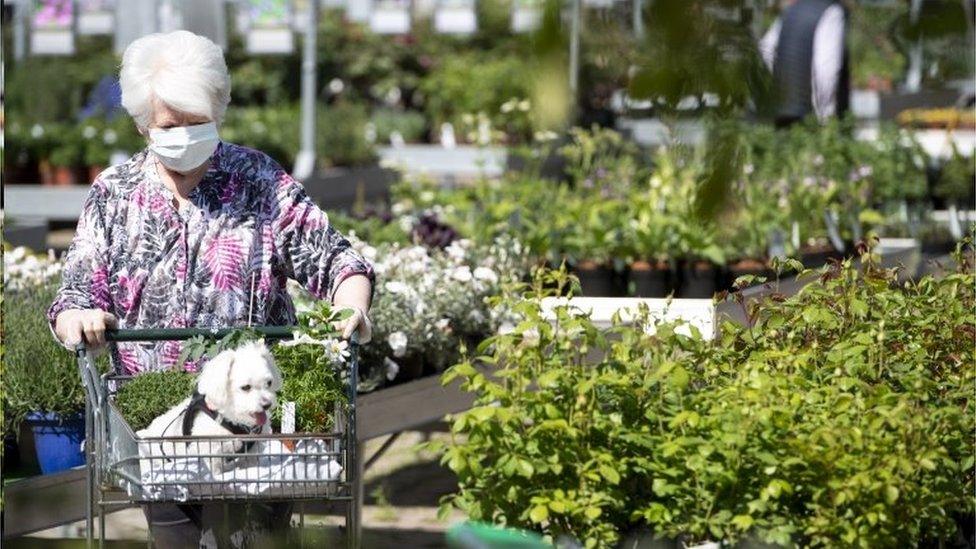Brexit: Horticulture "incredibly frustrated" by Irish Sea border
- Published
- comments
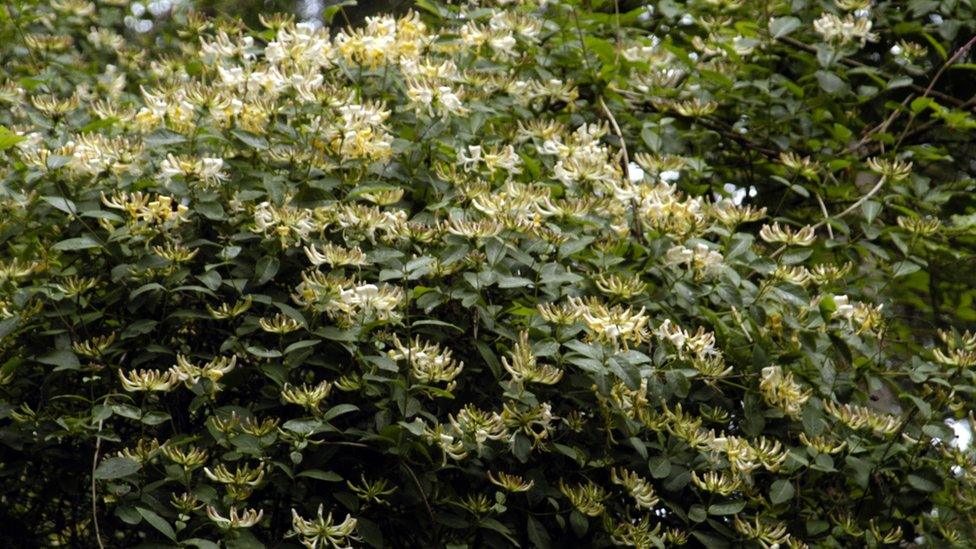
Honeysuckle is one of several species which are move banned from being moved from GB to NI.
Horticulture businesses are experiencing "incredible frustration" at the new Irish Sea border arrangements, a trade body has said.
Some common plant species like honeysuckle and oak are now banned from being moved from Great Britain to Northern Ireland.
That is because NI is continuing to follow EU plant health rules, while GB is not.
Some plant businesses in GB have stopped making sales to NI customers.
James Barnes, chair of the Horticultural Trades Association (HTA), said: "Plant health regulations mean GB businesses now face inspections at up to four separate points in the supply chain journey, adding time and expense into the process.
"That is causing some businesses to reconsider their trade with NI."
UK Department for Environment, Food & Rural Affairs said "overall" businesses were "adjusting well to the new rules".
Businesses in GB that are sending plants to NI must obtain a plant health certificate from a professional plant inspector.
The government is covering the cost of those certificates, but it is a time consuming process.
Details of the shipment must also be uploaded to an EU IT system known as Traces NT, at least 24 hours in advance of its arrival in Northern Ireland.
A ban on GB seed potatoes being sent to NI was highlighted before Christmas, but there are prohibitions on a wider range of products which the EU considers high risk.
These include Privet hedge plants, English Yews and and Elm trees.
Soil is also banned from being sent from GB to NI but other lower risk growing mediums like pure peat are permitted.
Orders cancelled
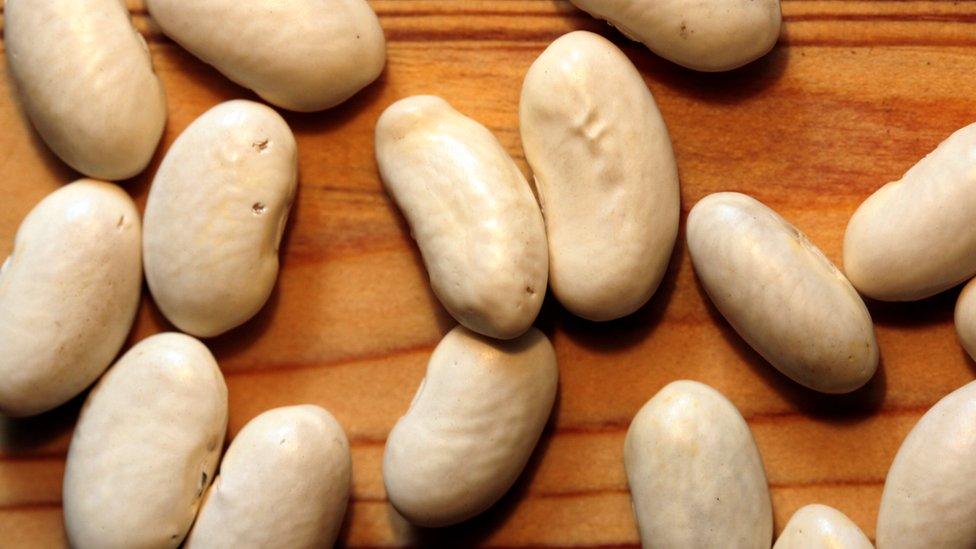
Several amateur gardeners have contacted the BBC to say that plant companies in GB have cancelled or suspended their orders.
Doreen Purce, from County Down, told the BBC she had placed an online order for seeds with an English company, only to have her digital basket emptied at checkout.
"I then rang the company and they said that they were not delivering to Northern Ireland at the minute because the paperwork was so complicated, and they had to abide by an EU directive," she said.
"I don't think this has been thought through. I would say that the UK's standards for food and horticulture are very high. I feel that we are very isolated now in Northern Ireland and in Ireland as a whole."
Seamus McNeill, from County Antrim, said he had placed orders with two GB companies, but both said they were unable to fulfil them because of the added costs involved.
"I have previously ordered hundreds of plug plants and the two companies I ordered with deliver to a lot of customers in Northern Ireland," said Mr McNeill.
"We are now deemed to be international customers. This had been a very cost-effective way for me to produce a lot of plants.
"The companies in England appreciate the customers they have here, but major difficulties have now arisen," he said.
Mr Barnes from the HTA has called on the EU and UK to explore ways to ease the new rules.
"The impact of these complex and burdensome changes is far-reaching for GB and NI.
"The UK's horticulture industry stands to lose out if solutions cannot be found."
'Adjusting well'
The UK Department for Environment, Food & Rural Affairs (Defra) said it was "working closely with the horticulture industry to ensure they can take advantage of the opportunities leaving the EU brings".
"Overall businesses are adjusting well to the new rules and continue to trade effectively," a Defra spokeswoman said.
She added: "Alongside other measures, we have put in place the Movement Assistance Scheme (MAS) to support and assist traders moving plants, plant products, and agrifood from GB to NI - this minimises business uncertainty by supporting the direct costs of new certification requirements".
Related topics
- Published20 January 2021
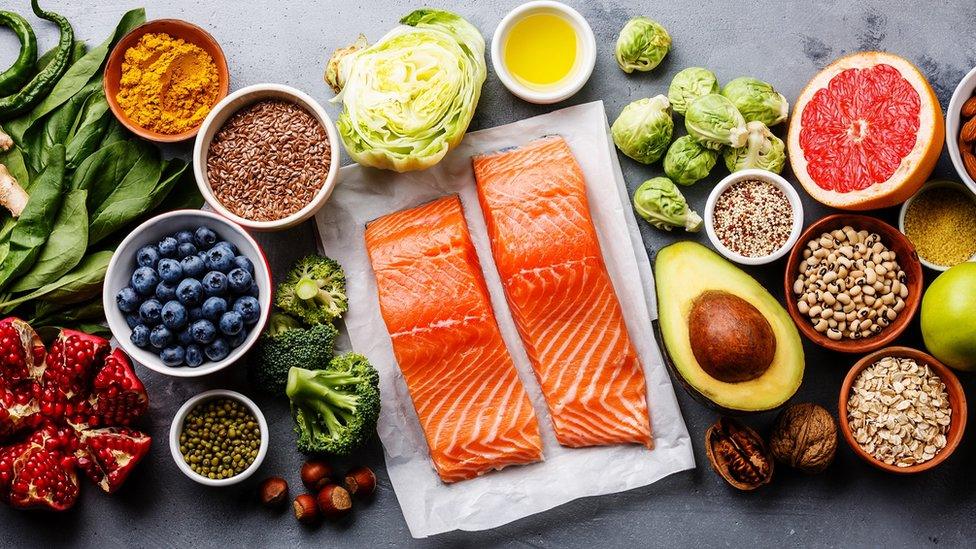
- Published27 October 2020
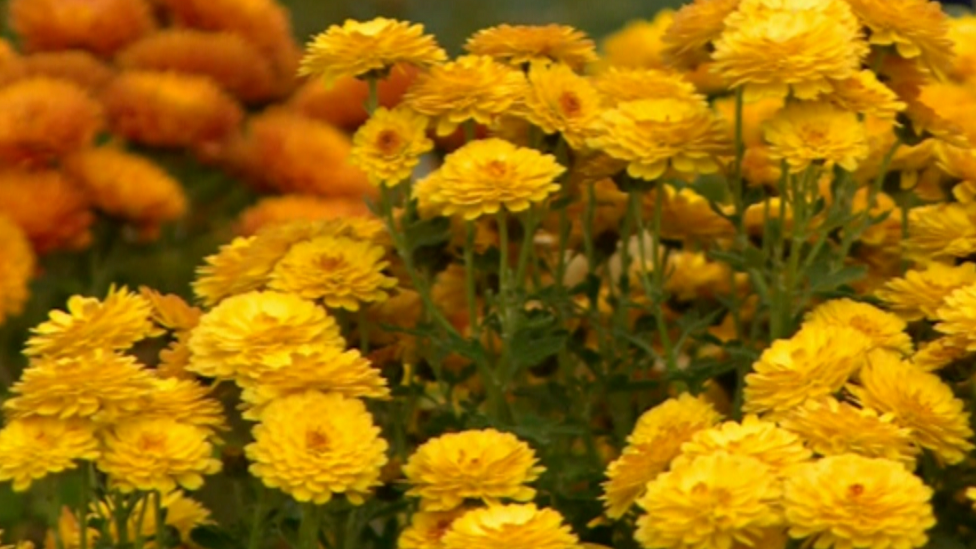
- Published16 December 2020
